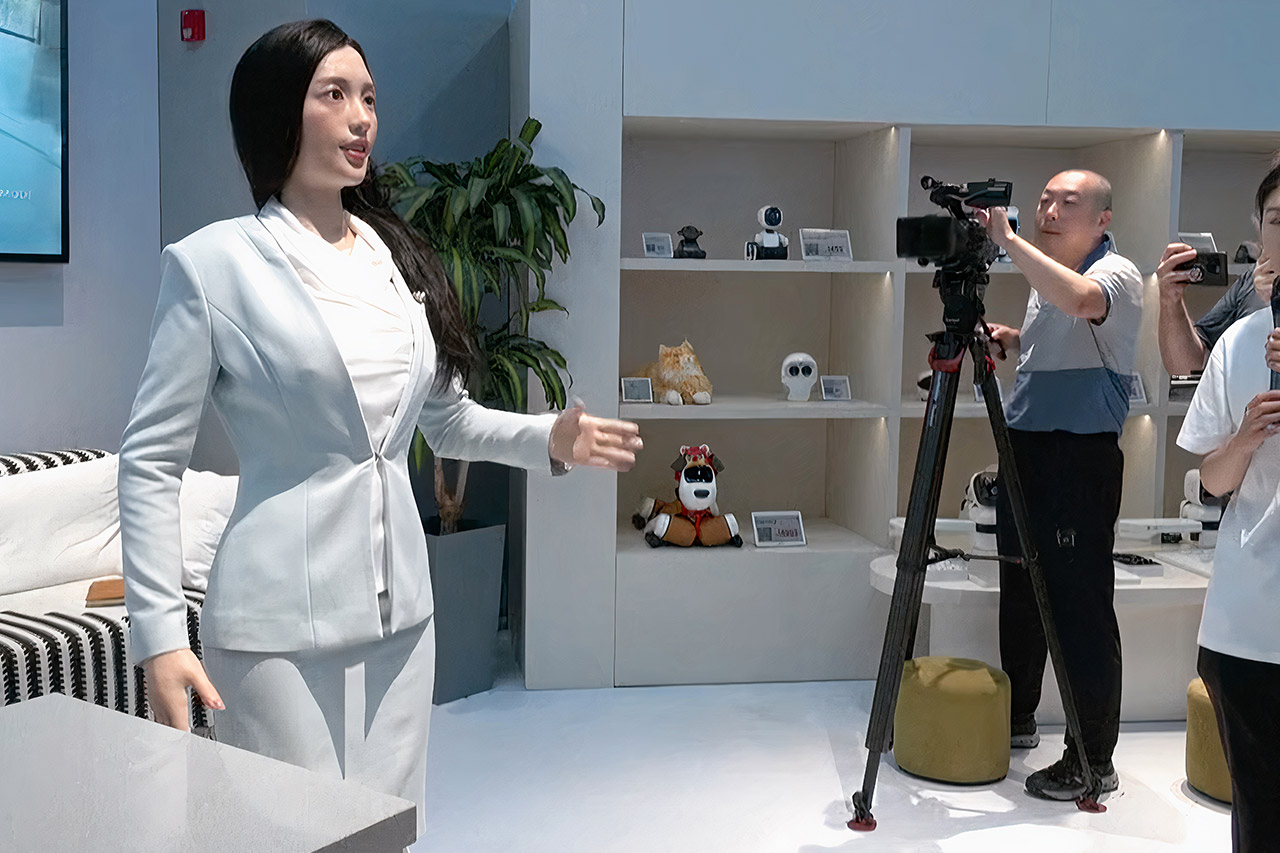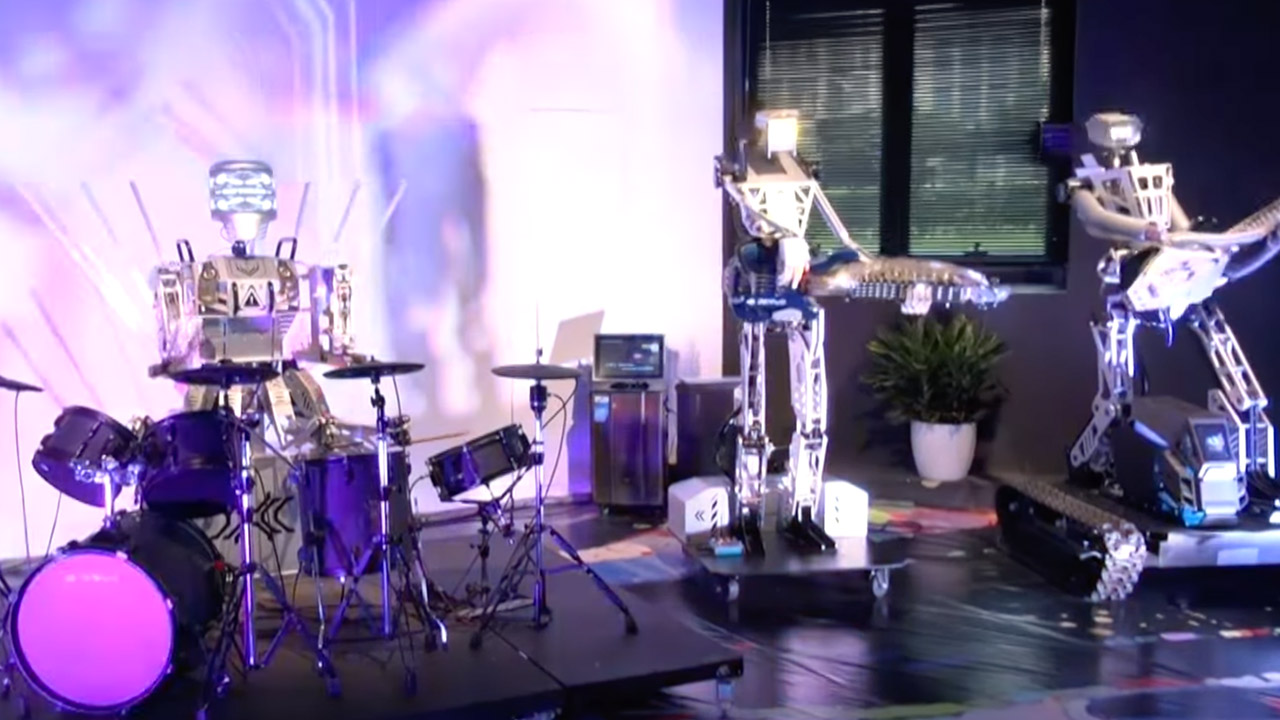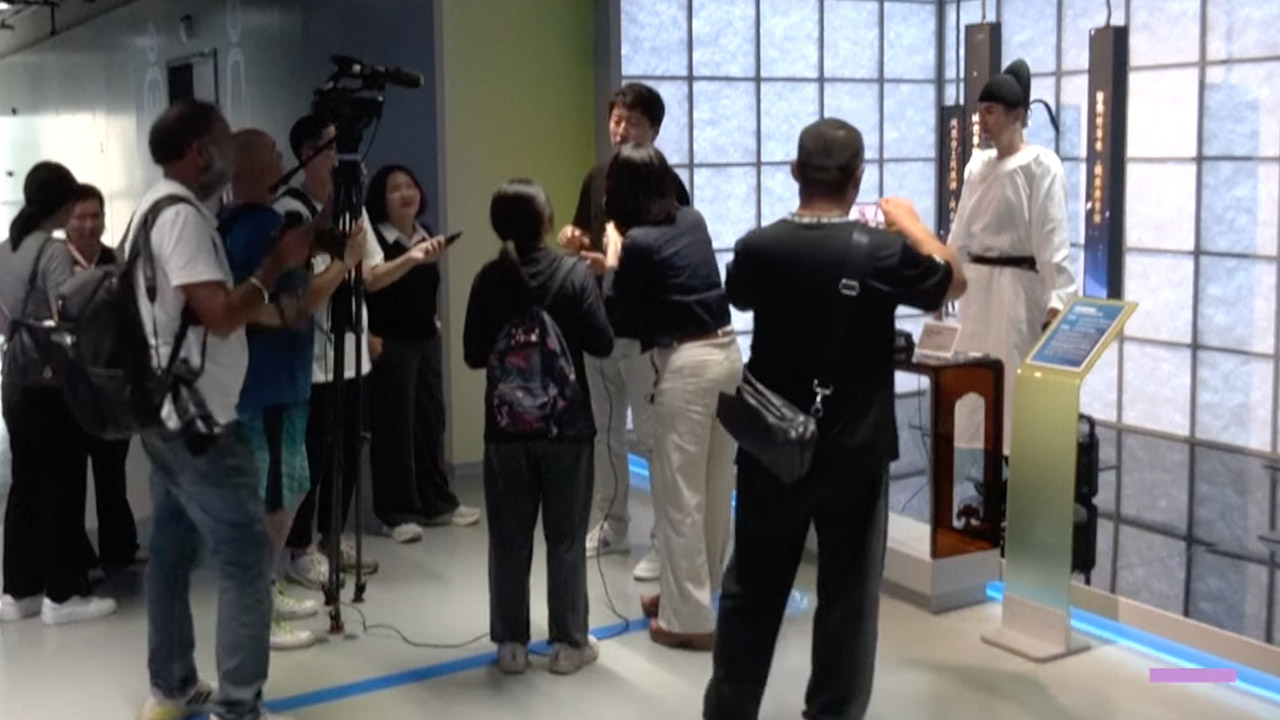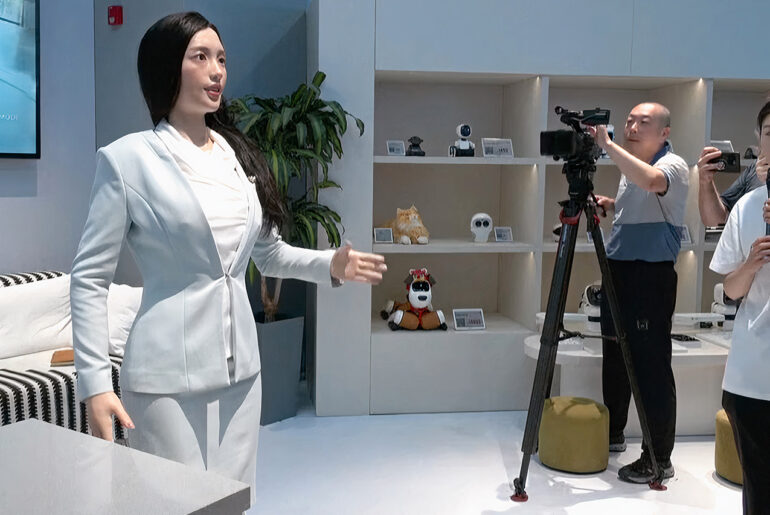
A new kind of shopping experience opened in Beijing’s E-Town district and it’s unlike any mall you’ve ever been to. The Robot Mall, which spans four stories and 4,000 square meters, is China’s first retail area dedicated to humanoid and consumer robots. It houses over 100 robots from 40 different firms, including local heavyweights Ubtech Robotics as well as Unitree Robotics, and aims to integrate robotics into everyday life.
On the first floor, a gigantic robotic hand hung from the ceiling flexes its joints to greet visitors. A group of robotic dogs dressed in vivid lion dance costumes performs to music nearby, while humanoid robots such as the Tiangong from Beijing’s Humanoid Robot Innovation Center demonstrate their talents. The range is amazing, ranging from functional warehouse models to whimsical reproductions of Albert Einstein that can explain physics for 700,000 yuan ($97,473). Prices range from 2,000 yuan ($278) to several million for the most advanced humanoids.
- ELEGOO Smart Robot Car: An educational STEM kit beginners (kids) to get hands-on experience about programming, electronics assembling and robotics...
- Complete Package: Contains 24 kinds of module parts including obstacle avoidance, line tracing module, infrared remote control and also you can...
- Easy to Assemble: All the module interface has been modified with XH2. 54 ports as to make it much easier and convenient to assemble the car and...
The government has poured in over $20 billion in subsidies in the past year alone and plans to launch a 1 trillion yuan ($137 billion) fund for AI and robotics startups. The Robot Mall is a showcase of this national effort, timed to coincide with two big events: the 2025 World Robot Conference (August 12) and the inaugural World Humanoid Robot Games (August 14-17). The conference is held at the Beiren Yichuang International Convention Center and features 1,500 exhibits from over 200 companies with nearly 500 experts from 20 countries to discuss the future of robotics. The games will see robots compete in 21 events from soccer and dance to material handling and drug sorting, a fun and practical look into what they can do.

A robot pharmacist is picking up boxes from the shelves, a humanoid waiter is serving drinks with precision that’s both creepy and impressive. You can challenge a robot to a chess match or watch a mechanical band perform with a drumming robot that keeps perfect beat. These are designed to spark curiosity and trust in a technology that’s still finding its way into our daily lives. Wang Yifan, the mall’s director, told reporters that robotics companies often lack the marketing skills to bring their products to the masses.

But for all the glitz, the Robot Mall reveals a hard truth: robots aren’t perfect. A cafe robot tasked with sorting trash from dishes froze mid-task, holding a coffee cup in the air until a technician intervened. It’s a small glitch but it shows the challenges of scaling this technology. High costs driven by low volume production means many models are out of reach for the average household. Ma Ning, deputy director at Beijing E-Town, said China’s strength in producing robot components hasn’t yet translated to affordable mass production. To address this E-Town has launched an agile manufacturing platform with pilot plants and supply chain hubs in the works to drive down prices. By 2030 the Chinese Institute of Electronics predicts the humanoid robot market will reach 870 billion yuan ($121 billion) driven by AI and demand growth.
[Source]










